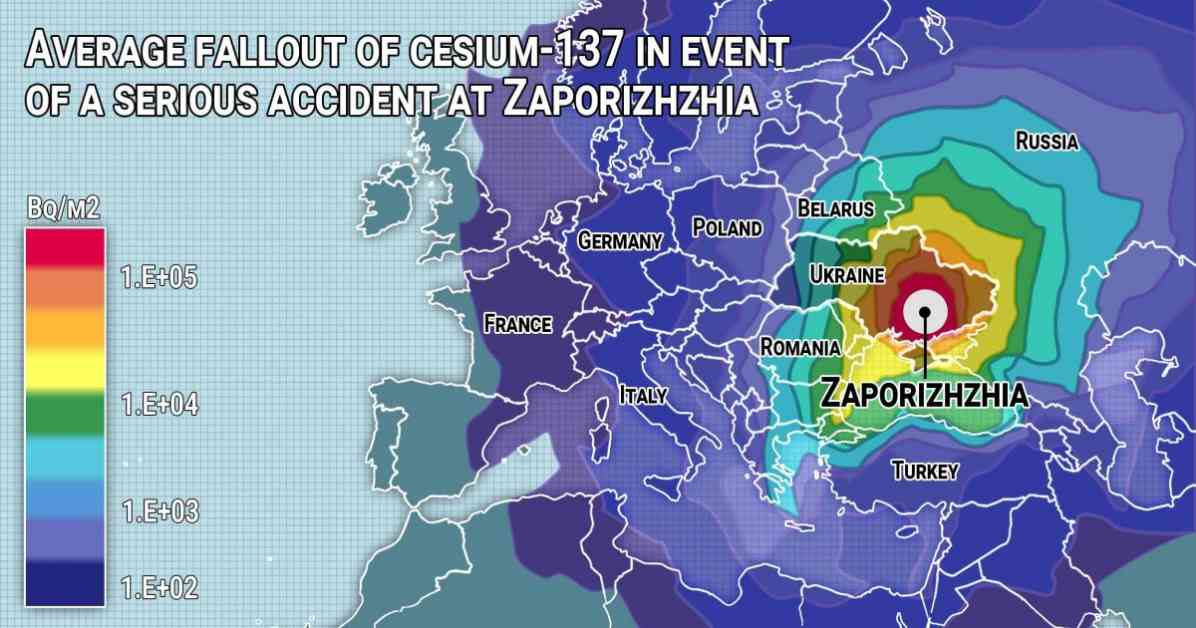A fire at the Zaporizhzhia nuclear plant in Ukraine, which is under Russian control, has raised concerns about a potential nuclear incident in Europe. The plant is the largest on the continent and among the top 10 in the world. Russian forces have taken over the plant and compromised its safety by storing military equipment and ammunition on the premises.
The risk of a nuclear meltdown at the plant remains high, despite the reactors being in cold shutdown. A map showing the potential spread of cesium-137 in the event of a nuclear explosion highlights the grave risks posed to Ukraine, Russia, and central Europe. The impact of such an incident could lead to illness, cancer, and even death due to radiation exposure.
Experts warn that if a significant incident occurs, it could have devastating consequences for economies and lives in the affected regions. The aftermath of a nuclear incident can result in acute effects such as nausea, vomiting, skin redness, hair loss, acute radiation syndrome, radiation burns, and even death. The long-term effects of radiation exposure can impair the functioning of tissues and organs, leading to serious health issues.
The ongoing conflict in Ukraine has heightened the risk of a nuclear accident at the Zaporizhzhia plant. The presence of military personnel and equipment on the premises has increased the likelihood of a catastrophic event. International organizations and experts have expressed grave concerns about the situation at the plant and the potential impact on surrounding regions.
Emergency workers in Ukraine have been conducting anti-radiation drills to prepare for a nuclear emergency. The risk of a nuclear incident remains a major concern, especially with the storage pools for spent fuel rods presenting a significant risk. The distribution of stable potassium iodide tablets is recommended to mitigate the risk of thyroid cancer in case of exposure to radioactive iodine.
As the situation at the Zaporizhzhia plant continues to unfold, it is crucial for authorities to take necessary precautions to prevent a nuclear disaster. The safety and well-being of the populations in Ukraine, Russia, and central Europe are at stake, and proactive measures must be taken to minimize the risks associated with a potential nuclear incident. The international community must remain vigilant and prepared to respond effectively to any emergencies that may arise.













